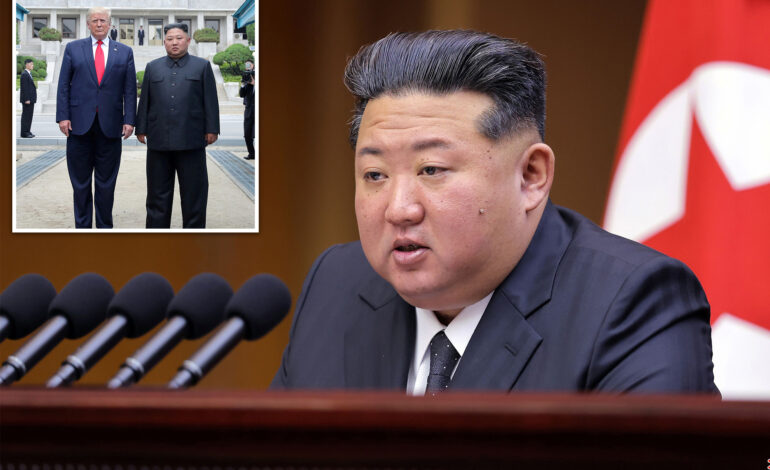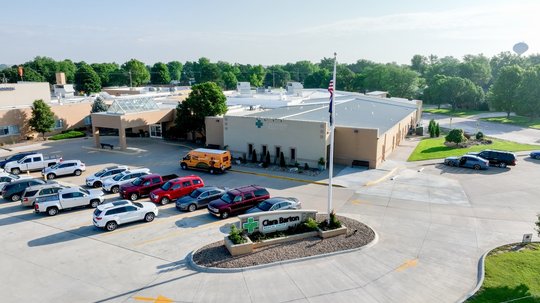Kim Jong Un Remembers Trump, Calls for US to Ease Nuclear Demands

North Korean leader Kim Jong Un expressed nostalgia for his interactions with former US President Donald Trump, while urging the United States to abandon its demands for denuclearization as a prerequisite for revitalizing diplomatic relations. This statement signals a potential shift in North Korea’s approach to international negotiations, which have largely stalled in recent years.
In a statement released on February 15, 2024, Kim highlighted the “good memories” he has of his face-to-face meetings with Trump, suggesting that a more constructive dialogue could be achieved if the US reconsiders its stance on denuclearization. These remarks came during a public address where Kim emphasized the need for a more flexible approach from Washington.
Kim’s comments reflect a desire for engagement, contrasting sharply with the rigid demands that have characterized US policy towards North Korea. The North Korean leader urged the US to recognize the significance of diplomatic efforts that do not hinge on the complete surrender of nuclear capabilities.
The relationship between the two leaders has been marked by a series of high-profile summits, the first of which took place in June 2018 in Singapore. At that time, both leaders expressed optimism about reaching a lasting agreement. However, subsequent negotiations faltered, largely due to disagreements over the timeline and scope of denuclearization.
During his speech, Kim did not provide specific proposals but emphasized that a mutual understanding could pave the way for renewed talks. He called for “constructive dialogue” that respects North Korea’s sovereignty and security concerns. The remarks were delivered at a time when tensions on the Korean Peninsula remain high, with ongoing military exercises and rhetoric heightening the situation.
International analysts are closely watching Kim’s overtures, as they could indicate a shift in North Korea’s foreign policy strategy. The demand for the US to drop its denuclearization precondition may open the door for negotiations aimed at reducing tensions and establishing a framework for future diplomacy.
As the situation develops, the global community remains hopeful that these statements could lead to a thaw in relations and a more stable environment in Northeast Asia. The potential for dialogue is welcomed by many, especially given the economic challenges faced by North Korea and the broader implications for regional security.
In summary, Kim Jong Un’s reminiscence of his time with Donald Trump underscores a longing for renewed diplomatic efforts, contingent upon the US easing its stringent demands. The world will be watching closely as both nations navigate this complex landscape, seeking a pathway to peace and stability.






